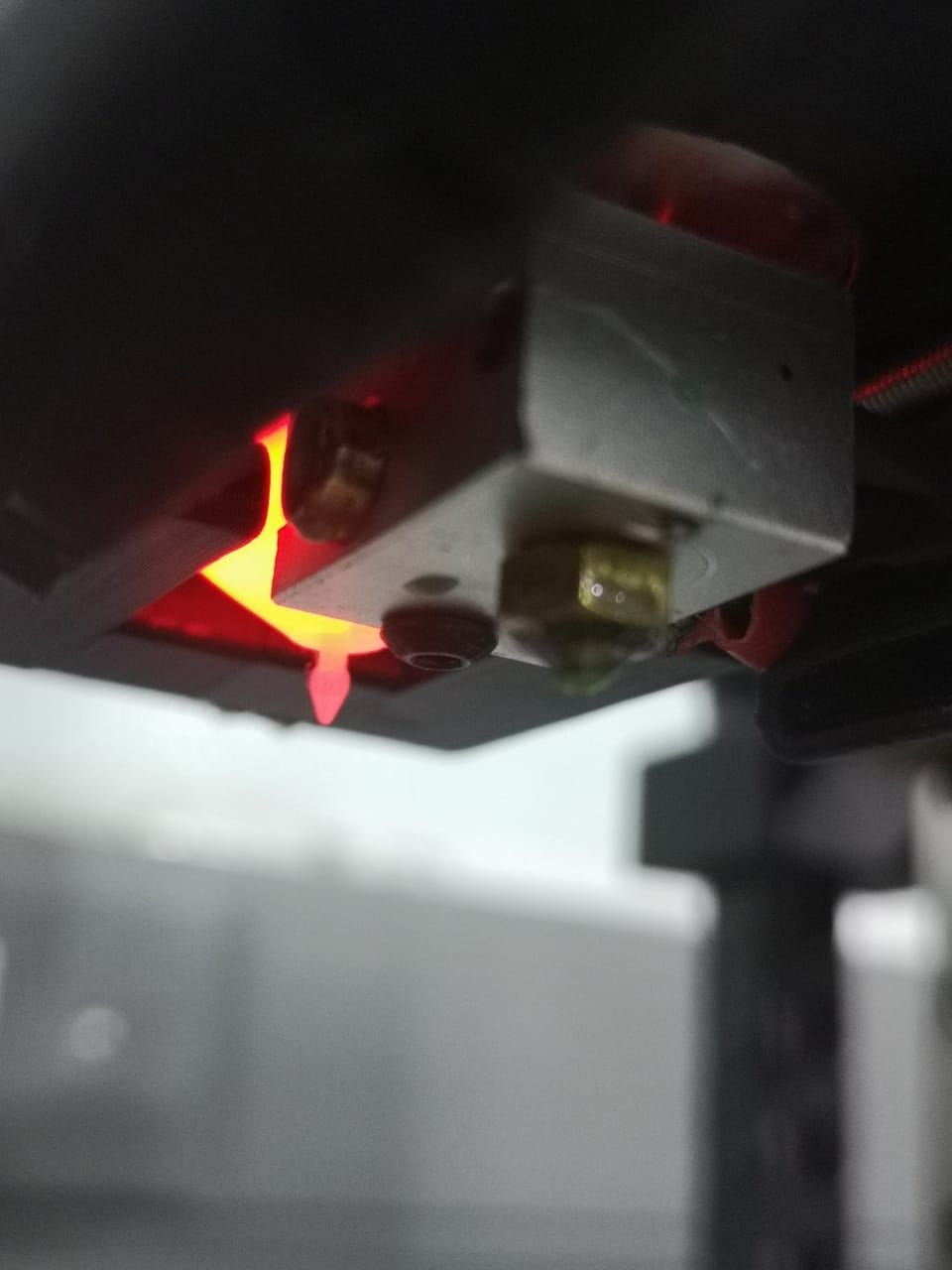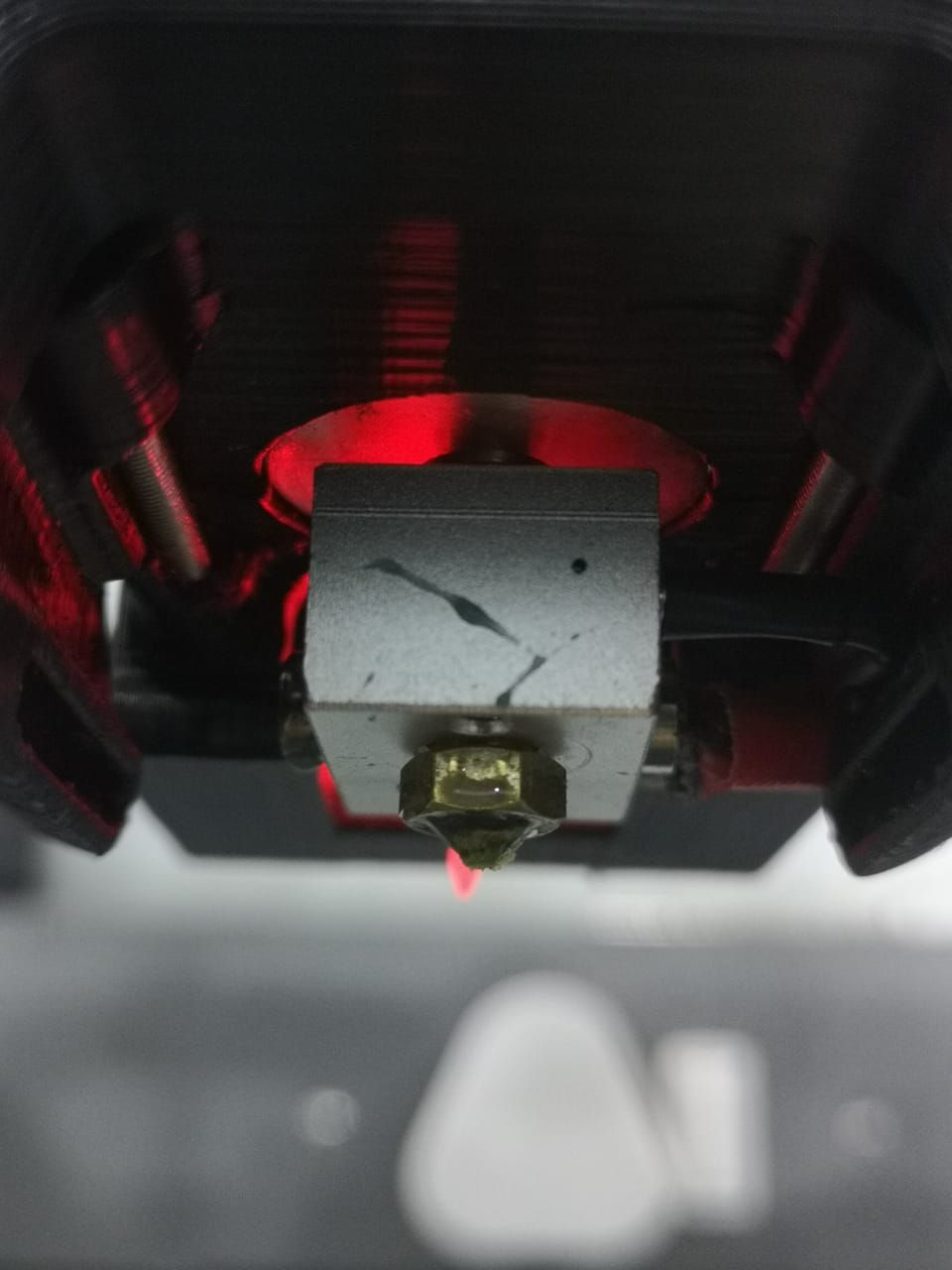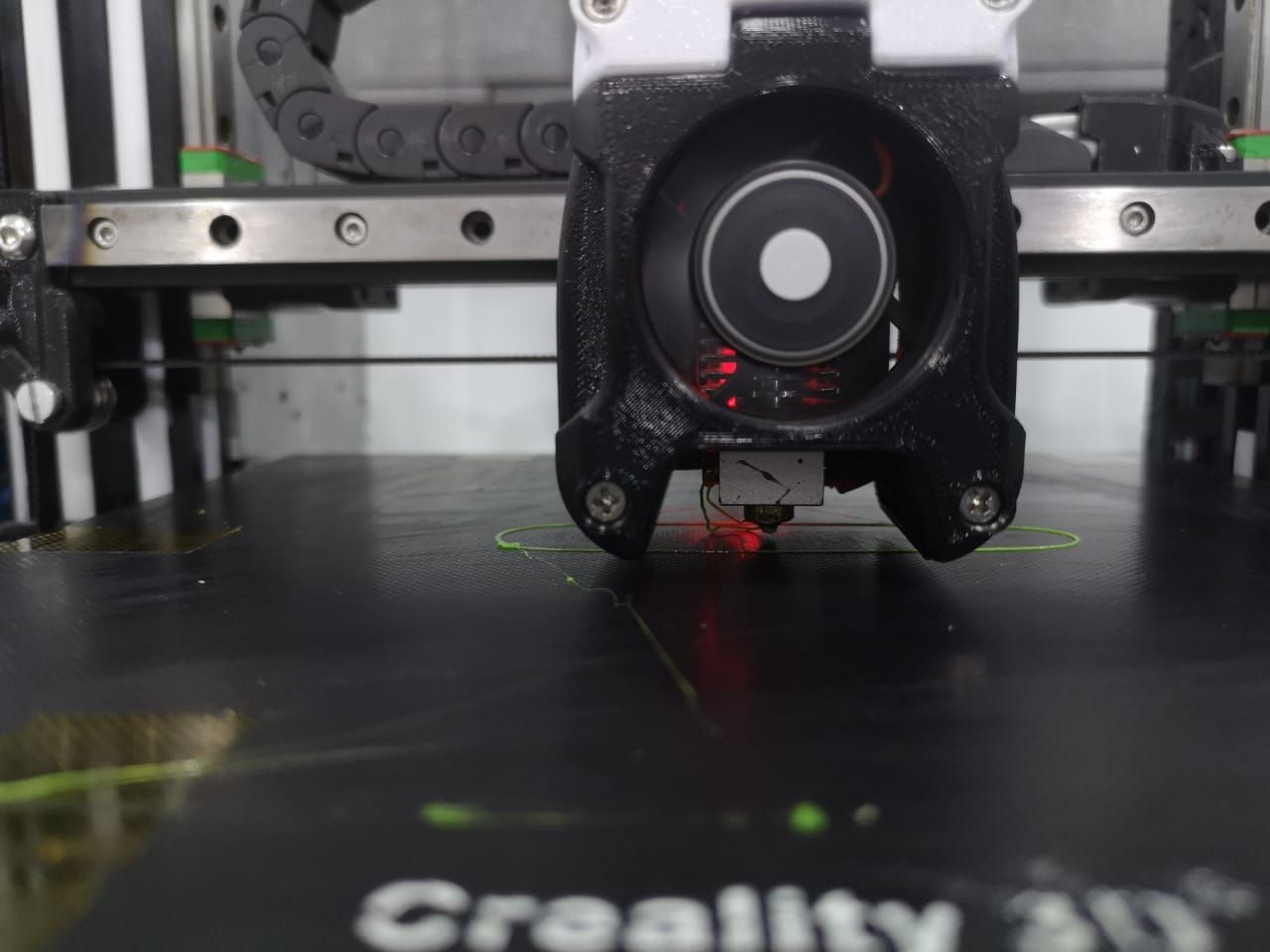PID Issues 3.4 RC1
-
Maybe? We're looking for anything non-standard, so...
-
@phaedrux
Have you done a PID autotune with2.4rc13.4rc1?
I'm getting D values in the 10 second range with my E3D V6 as well.
As you probably know I've been experiencing issues with wild temperature fluctuations with later releases. -
@owend you mean 3.4rc1?
-
@reefwarrior Yes. My fingers are dyslexic

-
Not wanting to hijack this thread......
A search reveals that in November 2021 in V3.4.0b6 , I was getting PID results ofM307 H1 B0 R1.594 C358.1:217.5 D6.05 S1.00 V24.3With same hardware in 3.4rc1
M307 H1 R2.848 K0.325:0.197 D10.51 E1.35 S1.00 B0 V24.3Different algorithm of course, but I wouldn't have thought the dead time would change that much as a result and it may explain the over shoots I now get.
-
@owend I will try a different firmware version tomorrow, however 3.4 is needed to keep my mini12864 up and running. My overshoot is typically 10 to 15 degrees at the moment...
-
@reefwarrior said in PID Issues 3.4 RC1:
@owend I will try a different firmware version tomorrow, however 3.4 is needed to keep my mini12864 up and running. My overshoot is typically 10 to 15 degrees at the moment...
Overshoot is typically caused by the R parameter being too high. It appears to have increased significantly from earlier. Try reducing it.
-
-
Also:
M307 H1 R2.0 K0.545:0.322 D10.96 E1.35 S0.80 B0 V24.1 ;V3.4RC1
M307 H1 B0 R2.788 C90.8:60.3 D10.93 S0.80 V24.1 ;V3.3 -
My layer 1 printed perfectly. Just after beginning on layer two, temperature exceeded by 15 degrees; and cause a heater fault.
-
@reefwarrior Does the part cooling fan turn on for layer two? It seems as if the firmware is anticipating a drop in temperature from the cooling and and tries to compensate.
Do you have a nozzle sock to test with?
Also it seems like your heatsink fan may be acting to cool the hot block as well.
-
@phaedrux Hi. Yeah tested with a sock too. Same result. Hot end fan is isolated from heat block - there is like a round 'O' of plastic (like a divider) between the heat block and the fins.
Also what is the approximate time of a PID cycle with defaults? I quite frequently have 30+ minutes. I even swapped out the board this morning. Same result!
-
Also changed hot end fans. No difference.
-
@reefwarrior with cooling like that and no silicone sock over the heater block, you are certain to get a big temperature drop when the part cooling fan turns on. So I suggest you add a silicone sock, then re-run heater tuning for that tool. By running it for the tool (i.e. using the T parameter in the M303 command instead of the H parameter), it will tune with the fan both on and off, and help correct for the cooling effect of the fan.
Heater tuning on hot ends normally finishes fairly quickly. Heater tuning on bed heaters can take a long time, especially if the bed has high thermal mass so it cools down very slowly.
If the problem persists, please post a screen shot of the hot end temperature plot in DWC, from just before the first layer ends up until the heater fault.
As a last resort you can increase the allowed temperature variation using the M570 command; however if you get a temperature drop exceeding 15C when the fan turns on, that is likely to cause you extrusion problems.
-
I'm a little late to the party here and i'm running 3.4.0rc2, but i just hooked up my E3D Revo and also that threw "Warning: heater behaviour was not consistent during tuning".
This is my tuning results (@280°C):
Warning: heater behaviour was not consistent during tuning Auto tuning heater 1 completed after 4 idle and 30 tuning cycles in 631 seconds. This heater needs the following M307 command: M307 H1 R3.954 K0.588:0.169 D2.43 E1.35 S1.00 B0 V24.7 Send M500 to save this command in config-override.gRunning a Duet2 Wifi v1.03, 40x10mm hotend cooling and a single 5015 for partcooling.
-
@exerqtor my Revo is a prototype so may not be quite the same as yours, however I didn't get that warning during tuning. The M307 command resulting from tuning at 225C was:
M307 H1 R4.361 K0.450:0.647 D3.16 E1.35 S1.00 B0 V24.0which is not very different from yours. The second K value will depend very much on how strong your print cooling fan is and how well it directs heat to the print and not the nozzle; so you can ignore the difference. You will probably get good results with the values you obtained.
Possible causes of the "inconsistent results" message are that there was a draught affecting the printer during tuning; or that the fan speed wasn't consistent while tuning with the fan on; or that the ambient temperature was not stable.
I suggest you use the 3.4.0rc2+2 binary at https://www.dropbox.com/sh/amtiizdcylnuaye/AAA4hzXFvU0RMOSDtdT37HFua?dl=0.
-
Ok, i'll try that binary out and see if it yields an different result. Regarding the last tuning i did it with the chamber doors closed so it's not likely it was a draught, neither did i hear any drop in the fan speed, but who knows

Also just as a side note, i see that your M307 has 24V spot on, i've adjusted my PSU to be a little bit over at 24,6v (measured with a multimeter on the output). What's the most "correct" thing to do there when it comes to adjusting the output for a 3D printer? I come from the automotive industry and i'm used to seing higher voltages due to battery charing etc.
EDIT:
Tuned again with 3.4.0rc2+2 at 230°C and got this (without a warning):
Auto tuning heater 1 completed after 3 idle and 10 tuning cycles in 254 seconds. This heater needs the following M307 command: M307 H1 R4.716 K0.702:0.275 D2.47 E1.35 S1.00 B0 V24.7 Send M500 to save this command in config-override.gUnder half the time of the first tuning, and no errors. So it might be wise to tune the Revo's somewhere bellow 250°C (the first tuning that took 631 seconds was at 280°C), unless you put some special sauce in the rc2+2 @dc42



